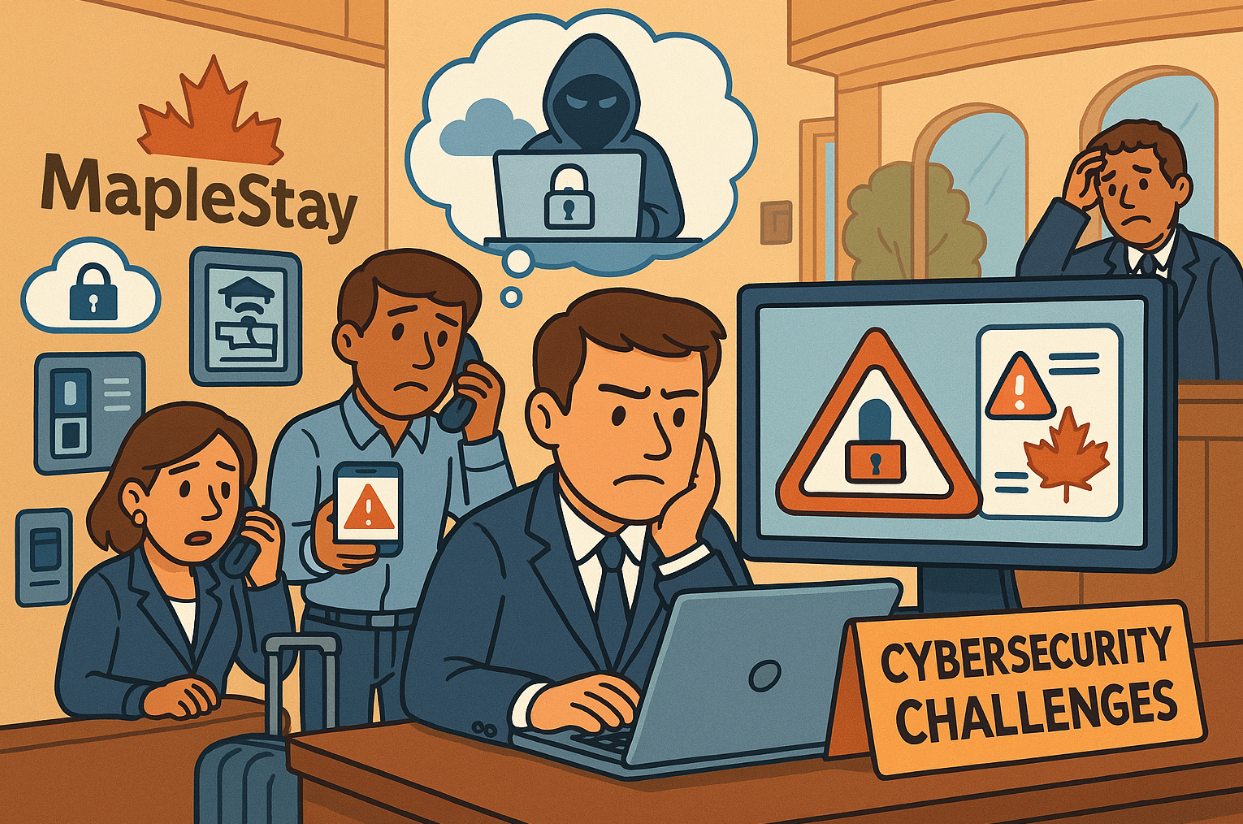Canadian Hotel Chain Accelerates Guest Experience Innovation Through Secure Productized Hospitality Platform
The Challenge
MapleStay Hospitality, a national hotel and resort operator, embarked on a major digital transformation to modernize guest services through a unified productized hospitality platform. The initiative aimed to merge property management, booking, and customer experience systems into a secure, scalable cloud-based platform. The vision was to deliver real-time analytics, personalized recommendations, and automated service delivery across locations.
However, the initial rollout faced significant challenges. Integration inconsistencies between legacy property systems, weak API security, and untested deployment pipelines caused frequent outages and data synchronization errors. Guest profile data, including preferences and loyalty records, became exposed through misconfigured endpoints. Prompting regulatory scrutiny under the Personal Information Protection and Electronic Documents Act (PIPEDA).
Internally, platform governance lacked formal ownership and lifecycle management controls. Engineering, marketing, and IT departments each managed aspects of the platform independently, resulting in version drift, inconsistent updates, and limited visibility into compliance posture. These deficiencies delayed service innovation, strained vendor relationships, and jeopardized brand trust.
The experience underscored an industry-wide challenge in hospitality: as services evolve into digital ecosystems, security, compliance, and governance must be built into the productization process from design to delivery.
Our Solution
Our Productized Offerings and Platforms team was engaged to design and implement a Secure Hospitality Platform Framework tailored to the unique demands of multi-site guest service operations. The engagement began with a comprehensive assessment of MapleStay’s digital architecture, platform governance model, and data handling practices.
Key measures implemented included:
– Development of a Platform Governance Charter defining accountability across engineering, marketing, and IT operations.
– Implementation of a Secure Development Lifecycle (SDLC) incorporating automated vulnerability scanning, penetration testing, and code review protocols.
– Deployment of DevSecOps pipelines to ensure consistent, secure, and auditable deployment across all environments.
– Integration of privacy-by-design controls and automated compliance testing aligned with PIPEDA and ISO/IEC 27001 standards.
– Creation of a customer-facing assurance dashboard detailing security controls, uptime performance, and compliance validation.
– Introduction of continuous monitoring and incident response features to identify anomalies and prevent service disruption.
By embedding compliance validation into every stage of the platform lifecycle, MapleStay established a sustainable foundation for innovation that balanced guest personalization with data protection.
The Value
Within eight months of program deployment, MapleStay realized measurable gains in operational efficiency, compliance assurance, and customer trust:
– 92% reduction in platform downtime through DevSecOps automation and standardized release workflows.
– Full PIPEDA and ISO/IEC 27001 compliance validation verified by third-party audit.
– 35% faster integration time for new hotels joining the digital ecosystem.
– 25% increase in recurring digital revenue through enhanced loyalty and analytics-driven offerings.
– Improved guest satisfaction driven by reliable, secure, and personalized service delivery.
Through this initiative, MapleStay evolved from a traditional hotel operator into a digital hospitality innovator, leveraging secure platforms as both a compliance enabler and a business growth engine.
Implementation Roadmap
1. Assessment (Weeks 1–3): Review architecture, integrations, and compliance posture across digital systems.
2. Framework Design (Weeks 4–6): Develop Secure Hospitality Platform Framework and governance charter; define SDLC and QA standards.
3. Deployment (Weeks 7–12): Implement DevSecOps pipelines, compliance validation tools, and monitoring systems.
4. Optimization (Weeks 13–16): Refine performance metrics, enhance dashboards, and train staff on secure platform management.
5. Continuous Improvement (Ongoing): Conduct quarterly platform audits, maintain compliance documentation, and gather client feedback for enhancement.


